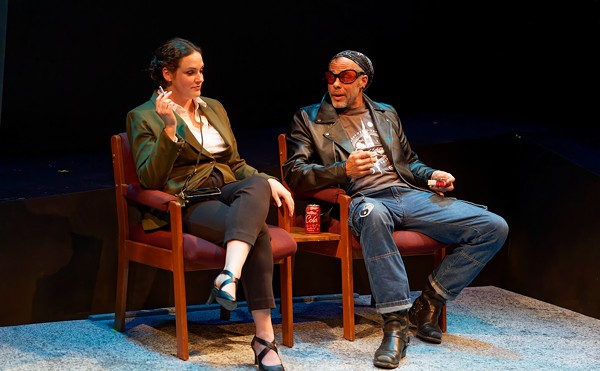Slaughter wasn't the only dancer last weekend whose chosen sound overwhelmed the dance. David Marchant constructed a music et al. collage to accompany the movement of his "The Coloring Book" that was far more compelling than his rather insipid dance.
In past recitals, Mary-Jean Cowell has performed elaborate, witty theater pieces, but this year she danced. "Unmatched Pair" is actually two short pieces. The first, "Hard Won," is a serious abstraction on a Schubert lied; the second, "Romantic Soulo," a comic trousers piece to a pleasant but forgettable Rossini song. Soprano Sally Baker, accompanied by Deborah Davidson, performed both pieces live. "Romantic Soulo" worked well, parodying the amorous posturing of guys in tights. A Schubert lied, however, has its own dance between singer and piano, so once again the viewer was torn between a complete and formidable, work of art and a dancer.
Asha Prem has been working on bringing the techniques of Indian classical dance to contemporary modern dance, and sometimes her piece, "In Search of Krishna," worked and sometimes it didn't. Her music, Dwaraki Krishna's vulgar fusion of traditional Indian music and a drum machine, certainly got in the way. Even powerful Mary Ann Rund's "Rudolph's Domain" used music — the first movement of Beethoven's "Moonlight" sonata arranged for three metal-strung guitars — too intrinsically interesting musically to dance to successfully.
But Christine Knoblauch-O'Neal's "Time Alone," performed to a familiar Gershwin piano etude, was pure delight. Knoblauch-O'Neal, both commented on and enlarged the music, a fusion of classical and jazz sound, with her auspicious melding of classical and modern dance techniques. To close the evening, Chiquita Payne, moving to Weedie Braimah's drumming, demonstrated some moves of the KuKu, a social and ritual dance from West Africa — a most jolly way to end the evening.





